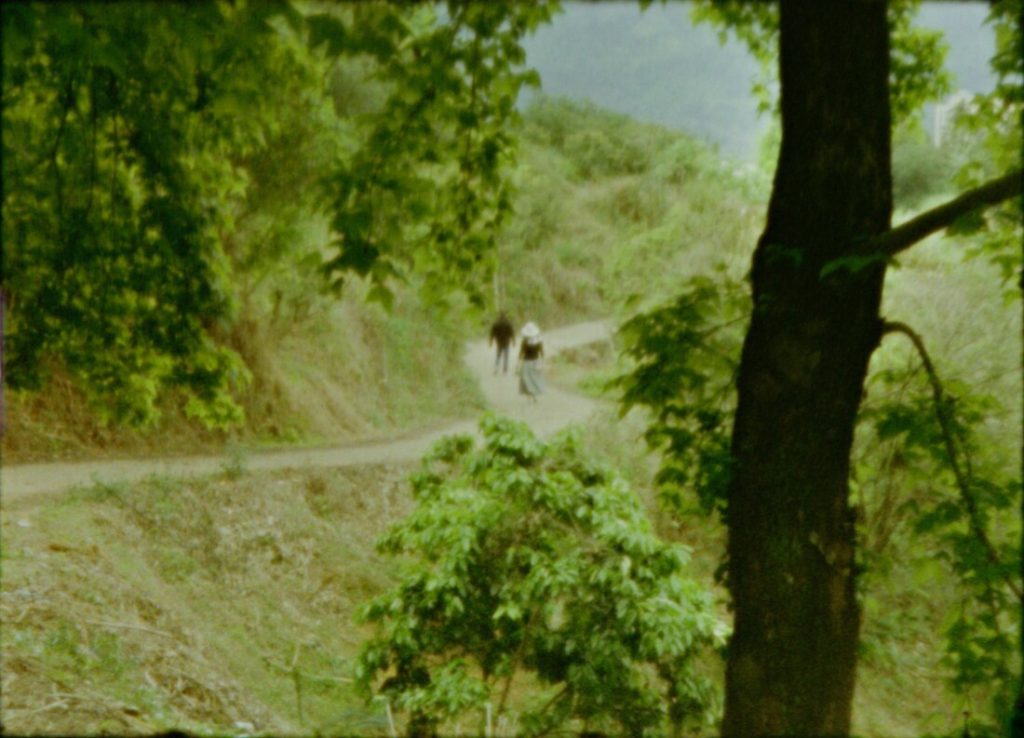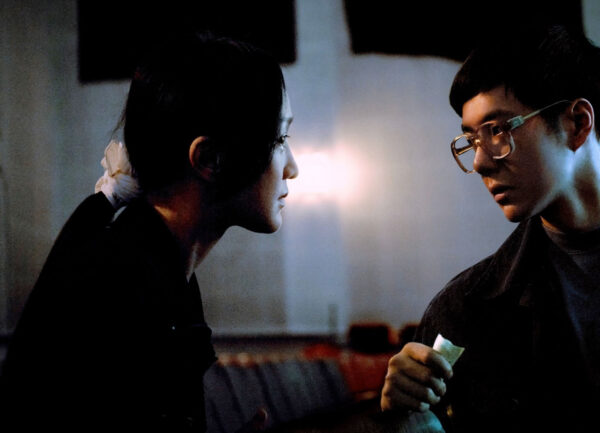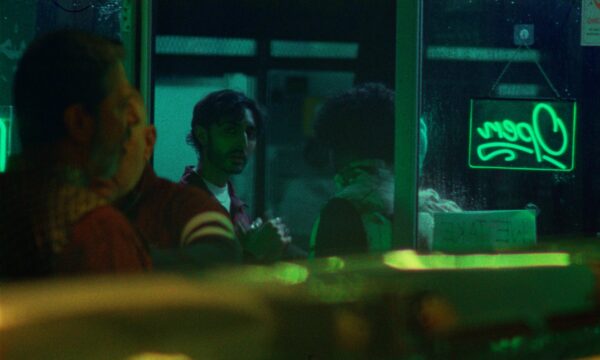Tracing The Invisible
Will You Look At Me
This Queer Palm winning short film holds an unattainable allure: unconventionally poetic yet accessible, personal but universal.

In 1940, German artist Hans Richter coined the term of a practice becoming increasingly popular and elusive these days: the essay film. “The film essay enables the filmmaker to make the ‘invisible’ world of thoughts and ideas visible on the screen…” 11 Peter Yeung, The secret history of the essay film, Dazed, 7th of May, 2014. ↩︎ Of course, this definition can allude to many styles and genres within contemporary cinema, yet it seems pertinent to Will You Look at Me particularly because of the unique form the ‘invisible’ has in the film. In his second short, Chinese filmmaker Shuli Huang employs sound and vision as two separate channels, giving rise to associative connections and malleable metaphors. Through the gaps between what we hear and what cannot be seen emerges a tragic family tale filled with both pain and compassion.
After winning the Queer Palm following its world premiere at Cannes’ Semaine de la Critique last year, the film has gone on to an impressive run in festivals, including a Sundance victory and a recent special mention at Clermont-Ferrand International Short Film Festival. It comes as no surprise. Will You Look at Me holds an unattainable allure, unconventionally poetic yet accessible, personal but universal. The documentary follows both filmmaker and protagonist Shuli Huang’s efforts to confront and unravel his mother’s disapproval of his sexual identity as queer. Rooted in the context of a traditional society with rigid collective values, Huang discovers remarkable courage as he sets out to truly understand and dissect his mother’s motivation and beliefs, even when this means being confronted with vile slurs (“Why did I give birth to a monster,” his mother utters at one point). Yet, Huang never steers away from the notion that his mother should unconditionally accept him for who he is (“I wouldn’t live my life according to anyone else”). This nuanced complexity encompassing a great deal of love and sorrow from both individuals is one of the defining qualities of the film and what distinguishes it from other nonfiction works of similar themes where the camera prompts change in the character’s reality.
The beautiful, varied visual imagery coinciding with the sound recording of the conversation between mother and son takes the form of a constant passage through time and space; country and urban landscapes are often shot from within a car or a train in motion. The film’s opening sequence includes snappy dim shots of heavy traffic at night as flickering brake red lights dominate the frame. It is the beginning of the journey, yet it documents a halt. This symbolic contradiction reflects the fracture at the film’s core: the dual desire for acceptance and independence and the everlasting conflict between tradition and progress. Paradoxes as such will reappear throughout the film in various ways.
Similarly, the film runs forward and backwards in time, inwards and outwards. Led by exploring his family’s past and his own identity, Huang retraces some of the footsteps of their lives at his age. Within this lies an ambition to discern and capture a point where a transformation occurs, to trace the invisible. He echoes one of many heart-aching points in the recorded conversation as the mother laments: “How did you become this? {…} You were such a sweet boy.”
The transformation trope is equally evident in the film’s cinematography, created by Huang himself in a stylish lo-fi palette recorded in super 8mm and 16mm. Motifs of light and darkness, of what is seen and unseen, frequently appear. In one scene, Huang points the camera and his hands against the sun, letting light rays shine through his fingers as he moves them back and forth; they appear and disappear through light and shadow. It’s almost as if he wonders, what parts of life can the camera really capture?
In a moment encapsulating the heart of the story, the director explicitly articulates the simple yet fundamental wish to truly be seen by his mother: “Can you look at me, just look at me, look at me, look at me.” It’s not a coincidence that the film’s title doesn’t end with a question mark. A gaze signifies acknowledgment. Huang’s words are pronounced as a plea, almost a demand. But the emotional climax and catharsis are not found in the mother’s recognition but rather in mutual compassion, love, and the capacity of both sides for the pain the circumstances inflicted upon them. “Shuli, did I do something wrong?” his mother asks. “Mama, you didn’t do anything wrong,” he replies. Both of them cry in sorrow; how can they still comfort each other with such understanding? It’s a gut-wrenching scene, exploding with emotions. While we might have been appalled by the mother’s harsh stand throughout the film, the filmmaker’s kind perspective also allows the audience to empathise with her suffering—this is perhaps the point where the impossibility of the gaze that shaped the entire film is at its starkest and most tragic state. We would never be able to see how Shuli and his mother sat intimately together in tears, and they might never see the wound between them heal.
While the filmmaker designed a fractioned reality, the ending does offer a reconciliation permitted by the rules of his cinematic creation. Here, Huang determines how he would like the story to resolve for him, as a filmmaker and a son. In contrast to the opening sequence, the final moments occur in daylight—cars in heavy traffic rush one after the other, intermittently hiding and revealing the figure of Shuli’s mother. It seems like she is looking for someone, perhaps him. Suddenly, she becomes aware of the distant camera. She looks directly at it, points, and laughs. The frame freezes just a second before a bus will hide her face again. During that brief moment, there is no doubt. Shuli is seen.





There are no comments yet, be the first!